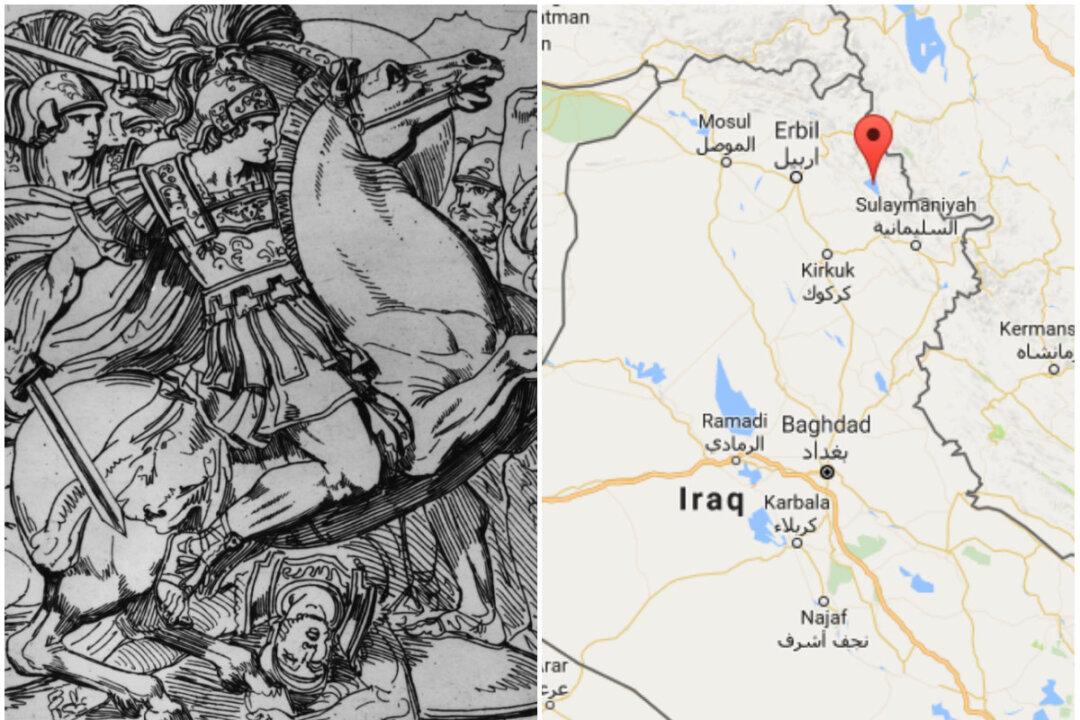An ancient city possibly founded by Alexander the Great has been discovered in Iraq thanks to the release of old spy photos and new drone footage.
The city, over 2,000 years old, was discovered by British Museum archaeologists. They stumbled upon it studying spy satellite photos taken over Iraq by the American government in the 1960’s. The images were declassified in 1996.





